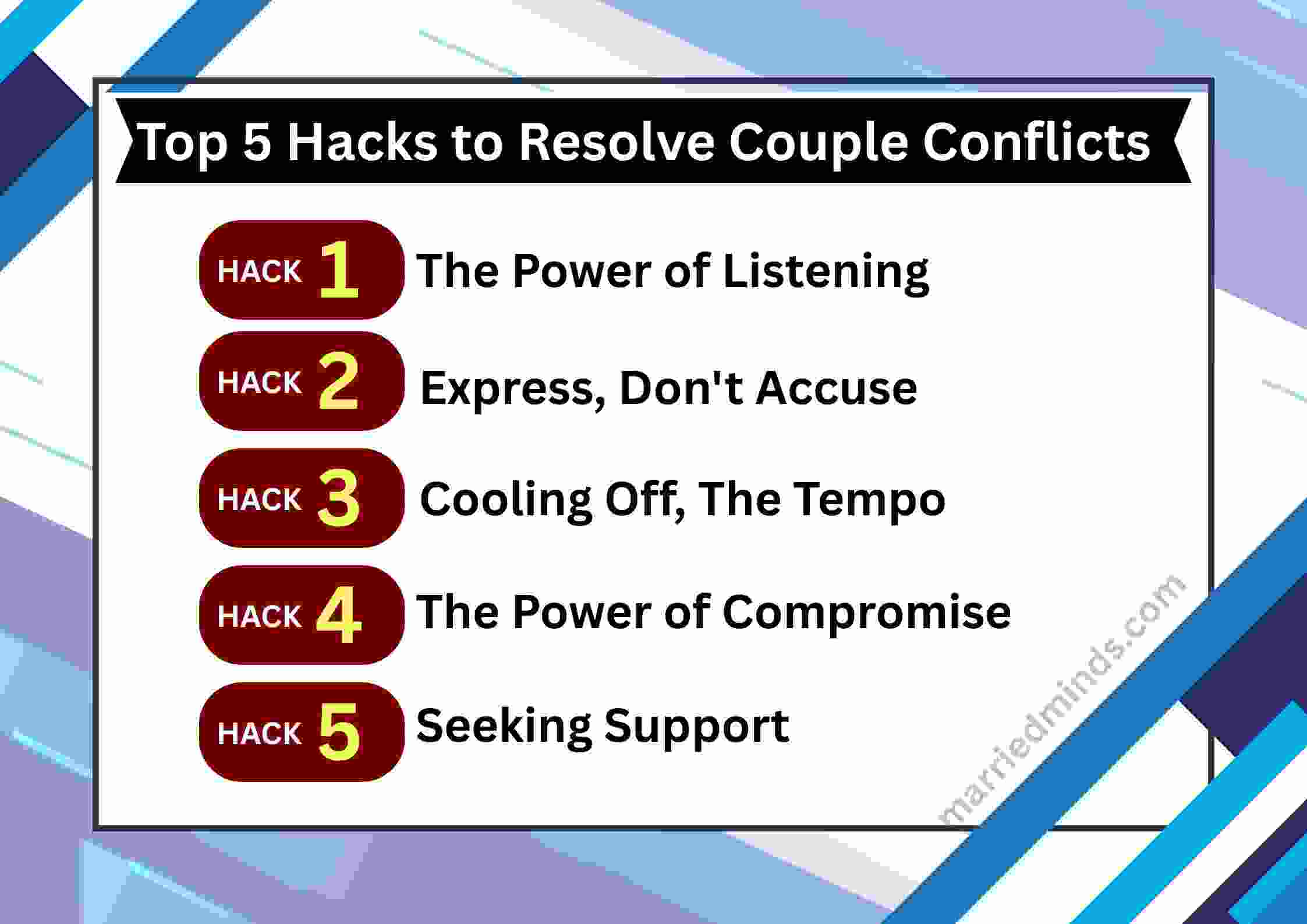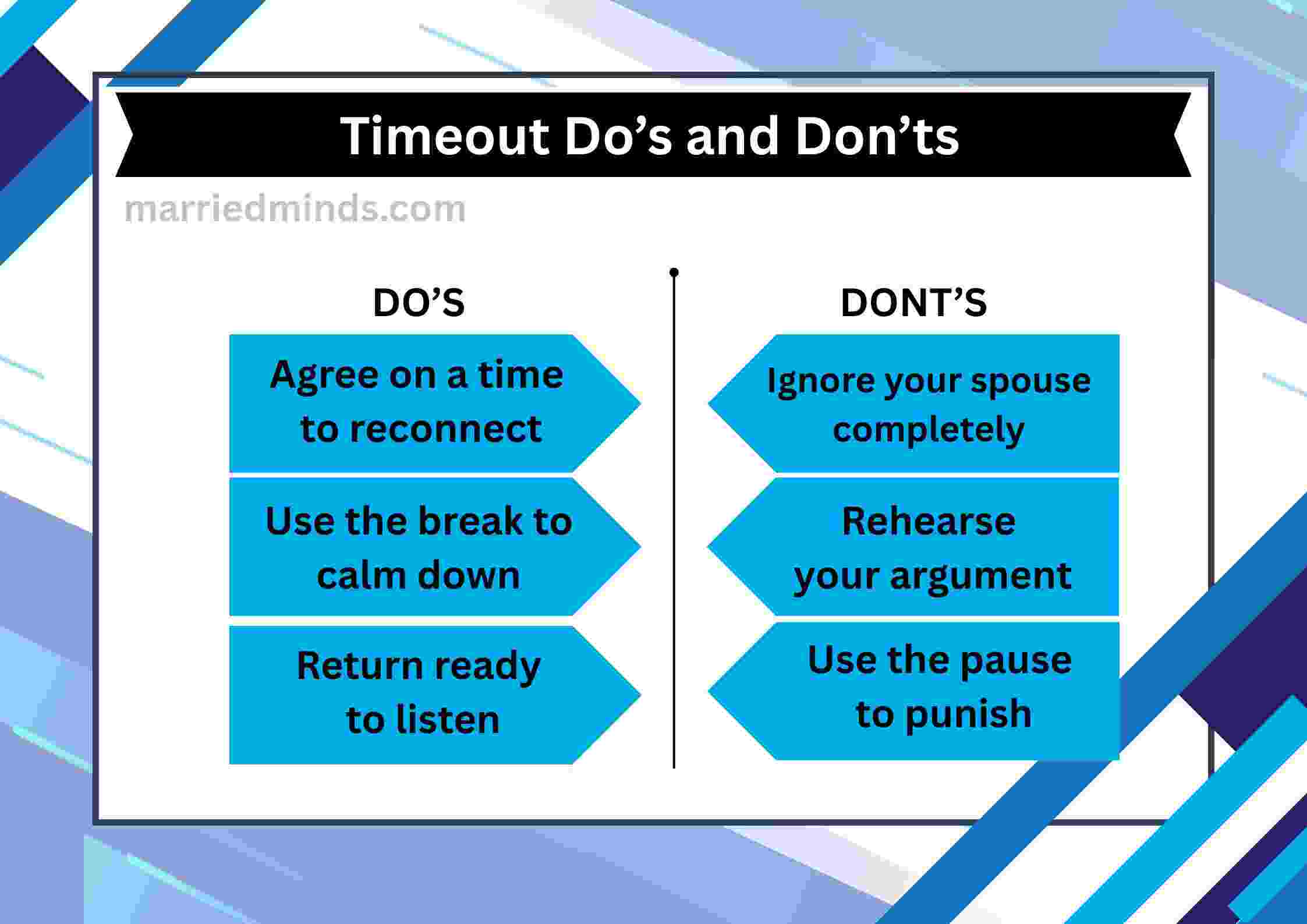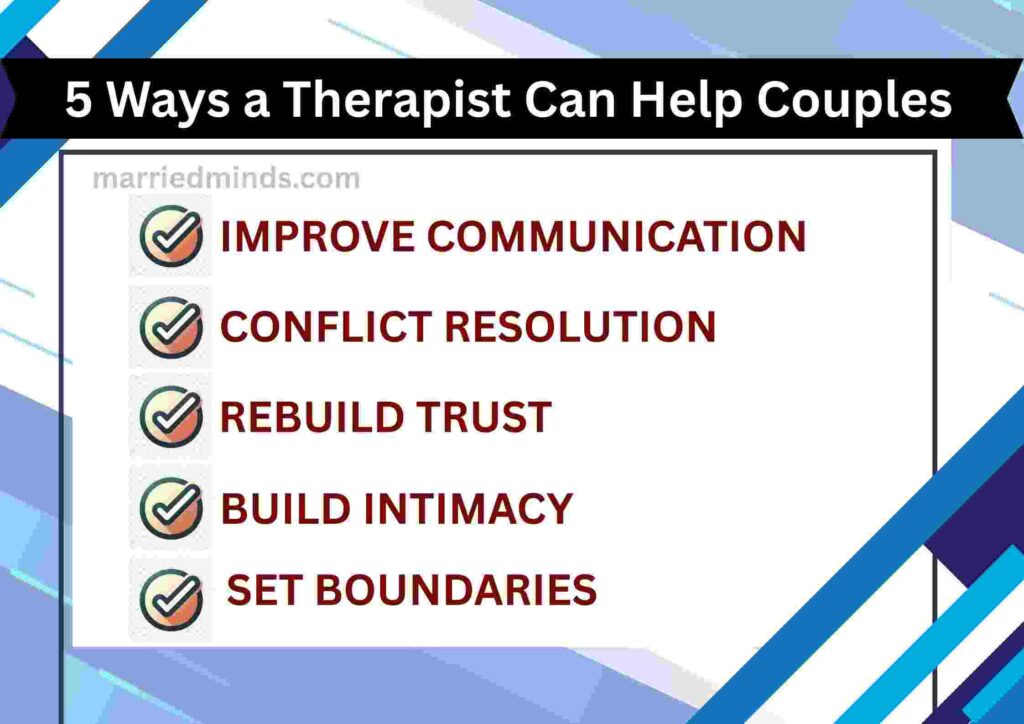Discover 5 proven hacks for couple conflict resolution to strengthen your marriage. Learn effective communication in relationships, compromise, and more to resolve differences quickly. Start today!
- Navigating Differences: Effective Strategies for Couple Conflict Resolution
- Hack 1 :The Power of Listening: Let’s Really Hear Each Other Out with Active Listening.
- Hack 2: Express, Don't Accuse: Let’s Talk with “I” Statements to Share Our Hearts
- Hack 3: Cooling Off, The Tempo : Take a Timeout When Things Get Heated Before it Gets Worse
- Hack 4: Meeting in the Middle — The Power of Compromise
- Hack 5: Seeking Support: Let’s Get Help When We Need It
- Wrapping It Up: Build a Stronger Marriage Today
Navigating Differences: Effective Strategies for Couple Conflict Resolution
Couple Conflict in marriage are a natural phenomenon and an integral part of marital life. It is important to understand that couples’ conflicts are temporary in nature and can be resolved with little bit of flexibility and lots of communication. But when arguments pile up, and there is no conflict resolution in sight this may strain and weaken the bond between spouses putting the marriage on rocky grounds.
However, there is good news? You can master the situation and avoid conflicts in marriage by using some simple and Effective Strategies for Couple Conflict Resolution.
In this guide, We share with you our 5 Powerful Hacks to resolve conflict in marriage. Whether you’re newlyweds or long-time partners, these tips will help you and your spouse build a stable and happier relationship.
So, Without wasting any time, Let’s dive in!

Hack 1 :The Power of Listening: Let’s Really Hear Each Other Out with Active Listening.
OfCourse talking to your partners is really important, But Guess What! What’s even more important that we mostly undermine is actively listening to your partners genuine concerns.
Active listening is like a magic wand for effective communication in relationships which has the power to uncover the root cause of the conflicts.
It’s not just hearing words—it’s about understanding your spouse’s deep down feelings and trapped thoughts. Active listening allows you to identify What? and Where? The problem is and how you can resolve the conflict in a relationship.
💡 Quick Stats:
Here’s How to Make it Work;
When your spouse talks, maintain focus on every word they speak and avoid interrupting them with your reply this helps in maintaining the flow of conversation.
Empathize with their feelings by listening, rather than outrightly dismissing their views or defending your past actions against their complaints.
Maintain eye contact throughout the conversation, and simply Nod or or say “I, get It’” till they are finished talking. By maintaining constant eye contact you validate that their concerns are genuine and you understand.
To Maintain clarity, repeat back what you heard in your own words. This way you remove any possibility of confusion and demonstrate that you understood their perspective.
– Put away distractions like phones.
– Use phrases like “I understand” or “Tell me more.”
– Avoid jumping to solutions too quickly.
– Pay attention to non-verbal cues such as body language
– Don’t make assumptions about what other is trying to say.

Hack 2: Express, Don’t Accuse: Let’s Talk with “I” Statements to Share Our Hearts
Blaming each other during arguments is pretty common among couples. However, putting all the blame on one person can turn even smaller issues into big fights.
That’s where “I” statements come in—they’re a game-changer for healthy communication skills. The whole idea of using “I” statements is to shift the focus from one person and share the blame together.
For example Instead of saying, “You never help me,” try, “I feel overwhelmed handling chores alone.” This shift focuses on how you feel when dealing with things rather than straight out pointing to your spouse’s faults.
Here’s How to Make it Work
1. Start with “I”: Begin your conversation with “I” sentences to assert complete ownership of your thoughts and actions.
2. Express Your Emotion: Be Crystal clear and expressive in saying How you feel. Use specific emotions while expressing “How frustrated,” “upset,” or “disappointed.” you were about the whole situation.
3. Avoid Blame or Criticism: Totally refrain from making accusations about your partner’s character. Stick to the facts and how they affect you.
4. Include Your Needs: Clearly state what you need or want in a positive way.
5. End with a Solution: Don’t leave the wound open, propose a concrete solution that directly addresses the cause of conflicts.
– Avoid using phrases that can imply hidden blame.
– Be focused on the issue without accusing the person.
– Keep a positive outlook and suggest a positive step forward.
– Constantly look at shifting from blame to ownership.
– Try to built a sense of partnership and mutual respect.
Hack 3: Cooling Off, The Tempo : Take a Timeout When Things Get Heated Before it Gets Worse

There is no denying the fact that arguments can get intense pretty quickly and personal volleys start getting uglier with every statement where neither spouse can think straight.
Such is the moment when a timeout can save the day. Simply moving away from the action is the best possible decision you can take to avoid any further damage to your marriage.
Taking such a conscious break during a heated exchange can help couples cool down their temper and approach the conflict with a renewed mindset.
Taking a break is a great conflict management strategy for couples to clear their heads of excessive anger and calm down to re-focus on the real issues at hand.
💡 Quick Stats:
According to a 2018 paper, About 69% of conflicts in marriage can be reduced by timeouts when anger overwhelms rational thinking.
How to Take a Break Effectively
1. Recognize Early Signs: Pick up early signs when the conversation is becoming unproductive and destructive. Common signs include raised voices, defensiveness, or feeling overwhelmed.
2. Agree to Take a Break: Communicate how both need to take a break clearly and respectfully.
3. Set a Time to Revisit Later: Agree to talk on the issue later when both are even headed. This shows commitment to resolving the issue.
4. Use the Break Wisely: During the break, engage in activities that help you relax, clear and calm your mind.
5. Re-Approach with a Clear Mind: When you finally return to the conversation, try to approach it with a renewed perspective and a calm demeanor.
Remember, These hack isn’t about avoiding the underlying problems—it’s about giving your marriage a breather to resolve differences between couples.
– Avoid using phrases that can imply hidden blame.
– Be focused on the issue without accusing the person.
– Keep a positive outlook and suggest a positive step forward.
– Constantly look at shifting from blame to ownership.
– Try to built a sense of partnership and mutual respect.
.
Hack 4: Meeting in the Middle — The Power of Compromise
Most married couples will not agree to all the arrangements and terms of the marriage, and that’s okay! The best way to deal with such situations is to find a compromise where both spouses can agree to the terms.
Compromises in marriage is considered as that common ground stepping onto which couples get the opportunity to turn differences into teamwork.
It’s important to understand that compromises in marriage is not about losing or gaining any ground, it’s about meeting halfway to find the right solutions to conflicts in marriage where both spouses feel valued, build trust and create harmony in marriage.
💡 Quick Stats:
A 2021 survey found that 68% of happy couples cited compromise as key to their success.
How to Make Compromise Work Effectively in Marriage
1. Communicate Openly and Honestly: Begin your communication with your spouse openly and with honesty to discuss your individual needs, desires, and concerns.
2. Be Clear About Your Needs and Boundaries: while you clearly articulate your own needs and values it is important to do it while respecting your partner’s personal boundaries.
3. Seek Common Ground: Do not digress and stay Focused on finding common solutions that work for both. Explore as many options to find common agreeable ground.
4. Practice Flexibility: Let go of your rigidity that your way is the only way. Be fluid and to adapt to alternative solutions when disagreements arise.
5. Focus on Teamwork: Approach compromise as team effort working toward a commonly agreeable arrangement rather than trying to win an argument.
Builds trust and mutual respect.
Reduces conflict and strengthens emotional connection.
Fosters teamwork and shared decision-making.
Enhances empathy and understanding of other’s perspectives.
.
Hack 5: Seeking Support: Let’s Get Help When We Need It

There are moments in marriage where finding a plausible solution to conflicts in marriage seems like mountains too big to climb alone.
That’s when couples therapy benefits shine. Seeing a therapist for marital issues doesn’t mean your marriage is failing—it simply means you’re committed to making things better again.
By seeking professional help couples may be able to open those closed windows of opportunity which they might have not seen before.
A professional can teach conflict management for couples, helping spouses to successfully untangle those tough and intricate threads of marriage like trust and faith without breakdowns.
💡 Quick Stats:
A study conducted recently found out that 90% of couples who try therapy see improvements.
5 Ways a Therapist Can Help Couples
1. Improve Two-way Communication: Therapists help improve two-way communication between couples and help reducing misunderstandings and emotional outbursts.
2. Resolve Conflicts Effectively: Help partners identify the root causes of conflicts and offer fair and balanced solutions.
3. Rebuild the Pillar of Trust: They help repair broken trust and offer a safe space to rebuild trust, and reconnect.
4. Strengthen Emotional Intimacy: Therapists help couples understand each other’s emotional needs and vulnerability.
5. Set Healthy Boundaries: Therapists assist couples in drawing personal boundaries around time, space, responsibilities, and family.
Choose a therapist that specializes in counseling couples in marriage
Make sure the therapist is licensed and qualified. Look for credentials.
Seek clarity on how they typically structure sessions and what methods they will use.
try a few sessions before committing long-term to see if the fit feels right..
Wrapping It Up: Build a Stronger Marriage Today
Mastering couple conflict resolution isn’t about avoiding disagreements—it’s about handling them with care. These hacks will definitely work because they’re rooted in respect, trust, and teamwork.
Why not pick one to try with your spouse today?
Your marriage deserves it.


